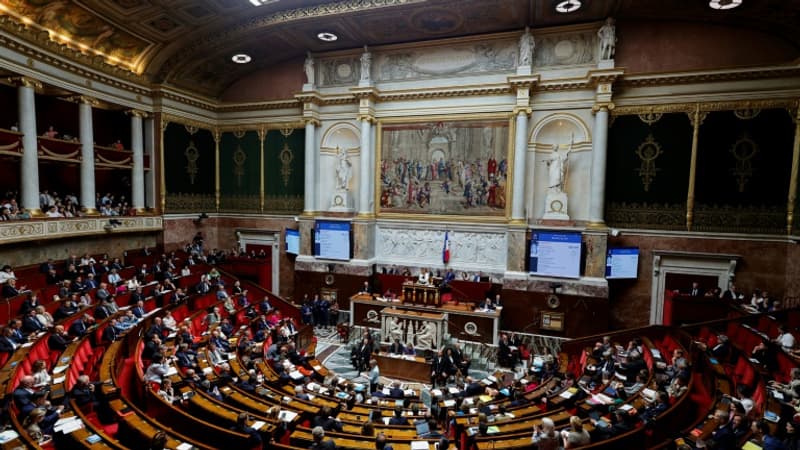This is the inaugural text of a tense return to the National Assembly: the bill “for full employment” arrives this Monday in the chamber, under the announced blows of the left, which denounces a most precarious “stigma.”
Reducing the unemployment rate to 5% by 2027 (compared to more than 7% currently) is the emblematic objective of the project of the Minister of Labor, Olivier Dussopt, adopted in July in first reading by the Senate. In the National Assembly, its examination in committee gave rise to the first battles: the opposition, divided on the substance of the text, jointly criticized the “unacceptable” conditions of the debate, after an extension late into the night from Wednesday to Thursday.
The bill proposes to better coordinate the multiple actors of the public employment service, having as its cornerstone a Pôle Emploi renamed “France Travail” (although the Senate wants to maintain the current name of the operator). And a network organization to facilitate the exchange of information. At a time when some businesses are struggling to recruit staff, the priority is to better target those furthest from employment, particularly RSA recipients, to offer them “more personalized and intensive support” towards employment.
“Free work”?
These beneficiaries, like young people supervised by local missions, would automatically become part of the list of job applicants, who would be invited to sign a “commitment contract.” The new “duties” provided for in this contract irritate the left, while LR wants, on the contrary, to toughen them.
The Senate, where the right is the majority, has written in black and white the obligation to carry out “15 to 20 hours” of activities per week. But the Government insists on maintaining some flexibility for people who have been unemployed for a “long time.” In any case, “this is obviously not free work or compulsory volunteering, but rather integration and training activities to allow a return to the world of work,” insisted Olivier Dussopt in committee.
The Nupes deputies (LFI, PS, communists and environmentalists), who intend to present “a motion of rejection” at the beginning of Monday’s debates, also speak out against the new “suspension-remobilization” sanction. It would allow the suspension of payment of an allowance to a person who does not respect their obligations, with the possibility of recovering it later. The idea is to add a level before removing it from the list.
A “sordid” logic according to the deputy Danielle Simonnet (LFI) or even an “infantilization” according to the communist Pierre Dharréville. It is a “new blow” against the most precarious, says socialist Arthur Delaporte, advocating for an unconditional minimum subsistence income. The RN is also hostile to the obligation to carry out weekly activities. And he considers that the “complexity” of the new governance planned for the network of employment agents is “doomed to stagnation.”
“Co-pilot”
“We cannot be satisfied with the current situation, in which less than 20% of RSA beneficiaries benefit from monitoring,” says Renaissance MP Christine Le Nabour, rapporteur of the text. Contrary to Nupes, the right intends to fight to preserve the minimum of 15 hours of activity: “If we do not enshrine this principle in law, it will be abused,” judges LR deputy Philippe Juvin.
However, following the spirit of the text, his group is concerned about the “financial cost of the reform”, estimated between 2.2 and 2.7 billion euros over three years. And he deplores “a kind of latent recentralization” of the public employment service. “Aucun article, aucune disposition ne remet en cause une seule compétence des collectivités” en matière d’emploi ou d’insertion, insists M. Dussopt, assurant que le réseau de l’emploi sera géré “en copilotage entre l’Etat et les local communities”.
Also in the crosshairs of the right are the measures on the “reception of young children”, for which the municipalities are established as organizing authorities. The Senate reduced its new obligations provided for in the text, partially reestablished in committee by the deputies. But the debate will continue in the chamber.
Source: BFM TV


